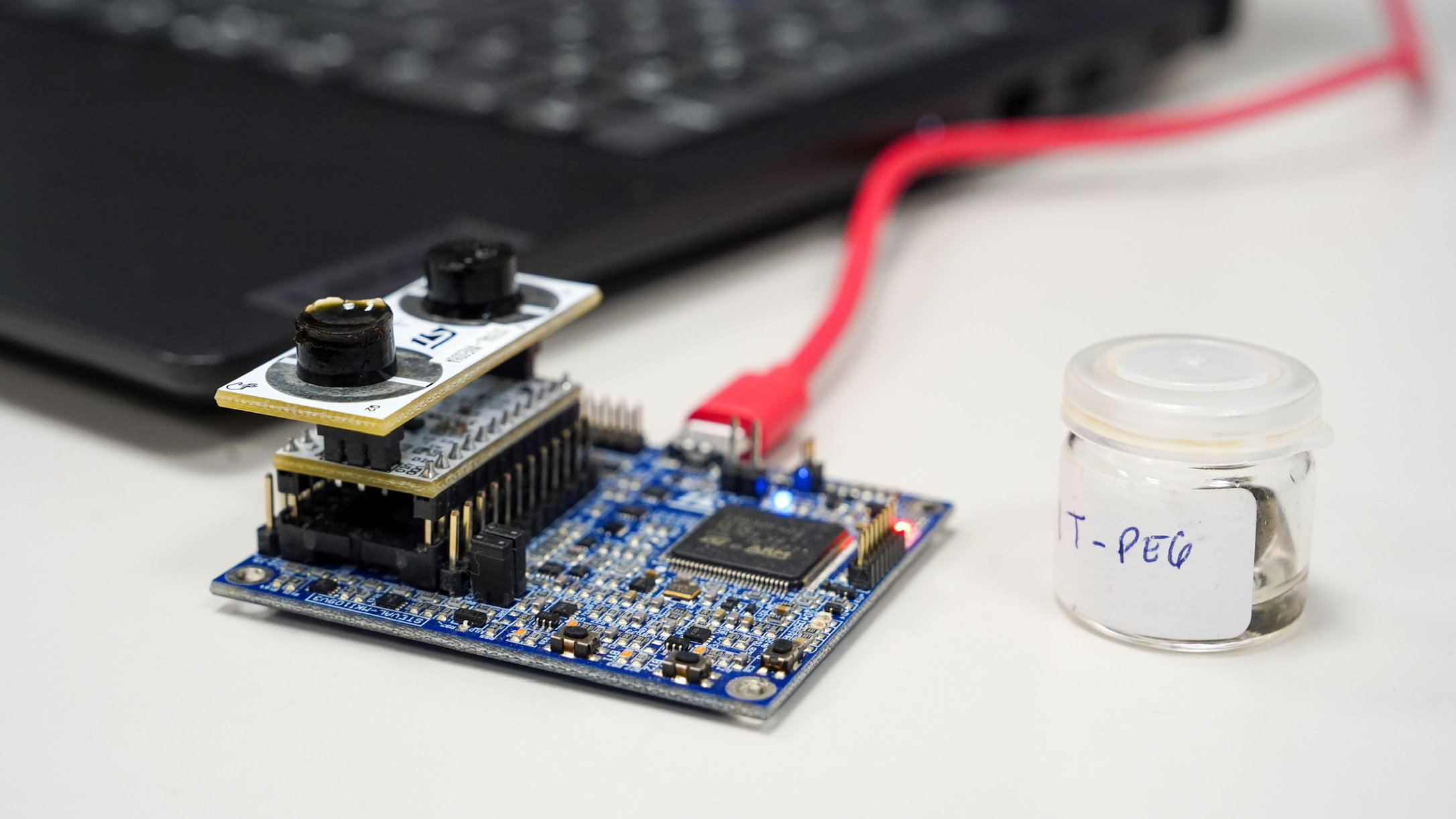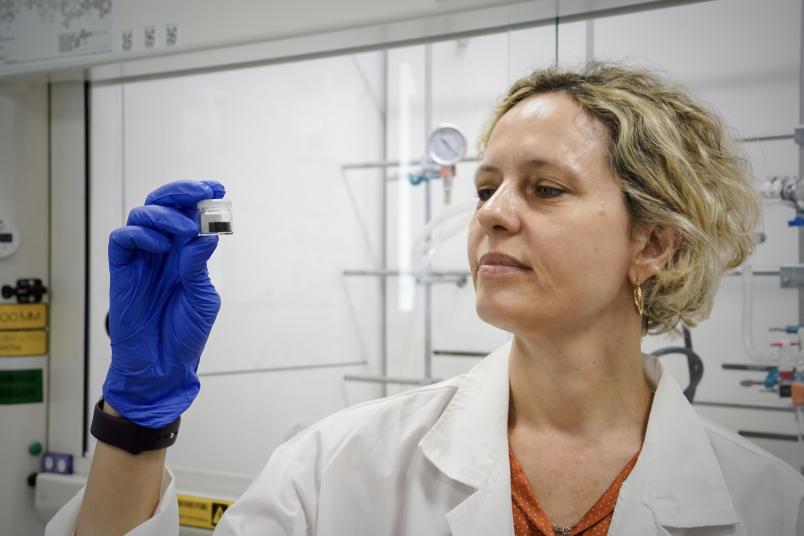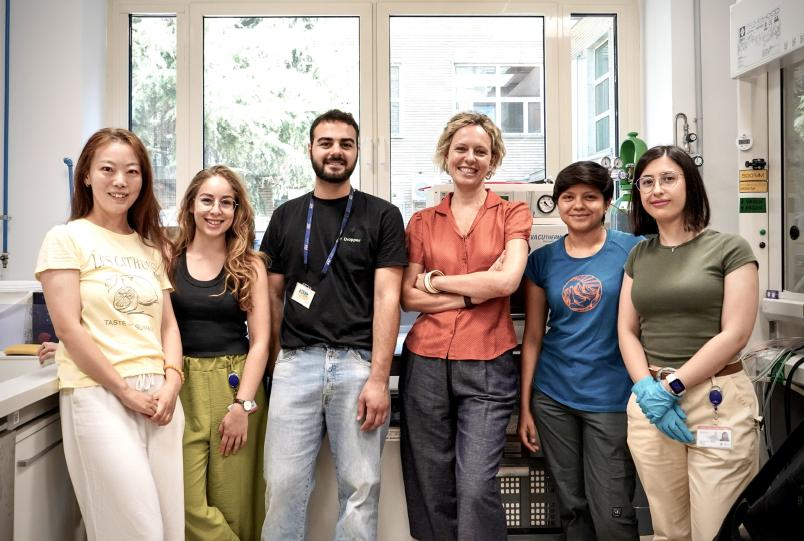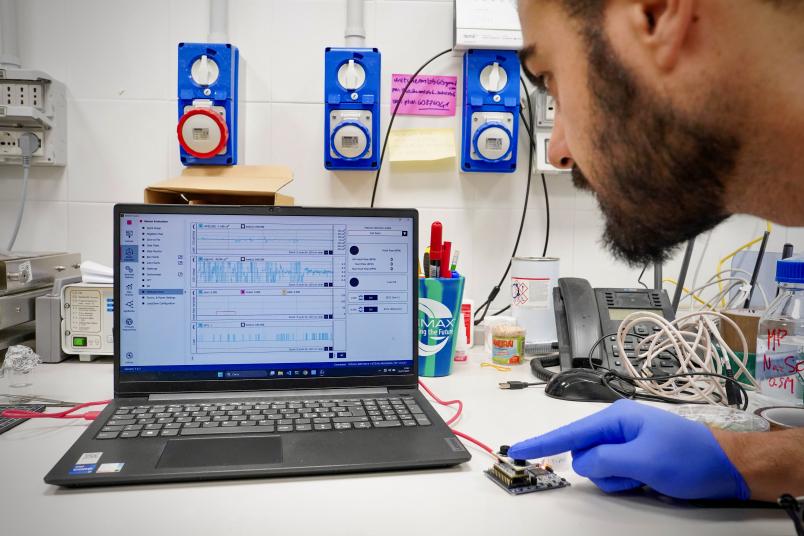
Politecnico di Torino Awarded Prestigious ERC Proof of Concept Funding

A research project from Politecnico di Torino has been awarded one of the prestigious ERC Proof of Concept grants, an initiative of the European Research Council aimed at supporting the practical application and valorisation of frontier research results. Out of the 150 awarded projects, nine are from Italy.
Preventing hypertension-related risks and providing more accurate diagnoses of cardiovascular diseases is a major global challenge today. Politecnico di Torino’s winning project, “HYSENS - HYbrid hydrogels based on 2D materials and conducting polymers for piezoresistive SENSing”, promises a breakthrough in the field by introducing an innovative, cutting-edge blood pressure monitoring system. Coordinated by Professor Teresa Gatti of the Department of Applied Science and Technology-DISAT, the project – awarded €150,000 by the European Union – aims to improve the performance of currently available monitoring devices, which are often perceived by patients as uncomfortable and only capable of providing intermittent blood pressure readings.
A central feature of the new study is the development of innovative wearable devices equipped with advanced piezoresistive sensors – a type of sensor that detects mechanical quantities and converts them into electrical signals – and based on hybrid hydrogels – biomaterials that play a key role in regenerative medicine.

Specifically, this novel approach builds on Professor Gatti’s previous work on 2D materials, conducted with her research team as part of the JANUS BI (All-liquid phase JANUS BIdimensional materials for functional nano-architectures and assemblies) project, which was supported by the European Research Council with a Starting Grant. The 2D materials embedded in the hydrogels at the core of the HYSENS project are extremely thin – extending only in length and width – and present unique properties such as high mechanical strength and excellent thermal and electrical conductivity. These properties make them highly versatile – a key factor in the ongoing experimentation, which will allow the material to respond effectively to pressure variations through changes in resistance.
Looking at the clinical applications of the new monitoring system, the project is expected to deliver two commercially exploitable outcomes: a battery-free NFC-based sensor – using Near Field Communication, a short-range wireless technology enabling data exchange between nearby electronic devices – for quick, spot measurements, and a second system with a small LoRa-powered battery – based on LOng RAnge, a low-power wireless communication technology for long-distance data transmission – for continuous monitoring. Both outcomes are currently the subject of a joint patent between the university and Justus Liebig University in Giessen, Germany, where Professor Gatti conducted her research prior to joining Politecnico in 2022.

The new technology promises significant advantages for patients: most notably, greater accuracy in blood pressure readings and the convenience of wearable monitoring devices, which bring tangible benefits to patient lifestyles. While current smartwatches can provide continuous readings with limited accuracy, the new system developed at Politecnico di Torino will allow direct measurements by leveraging changes in the intelligent material (the hydrogel) caused by blood pulses. In collaboration with the startup Dropper – based at Politecnico di Torino’s Incubator I3P – the system will also integrate a chip produced by STMicroelectronics, a global leader in semiconductors with customers in all sectors of the electronics industry. The chip addresses the issue of unwanted alterations caused by patient movement. The aim is to enable the use of the new technology even when the patient is in motion, making it easier to live with cardiovascular disease.
Once technical and regulatory hurdles are overcome, the potential market impact, clinical benefits and innovative approach promised by HYSENS could help shape the future of personalised cardiovascular healthcare. The project further demonstrates Politecnico di Torino’s commitment to applied research and the development of innovative solutions for pressing global challenges such as public health.
“It is a great satisfaction to see the potential of this (nano)technology recognised. My team has been working passionately on this for two years, and we are now managing to advance towards higher TRLs thanks to the invaluable support of Domenico Galdiero, CEO of Dropper, and his privileged access to cutting-edge solutions from STMicroelectronics”, commented Teresa Gatti.